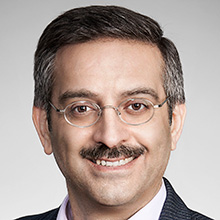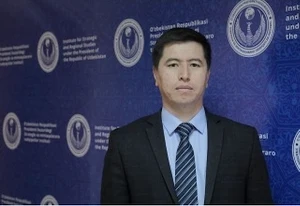
Kazakhstan Aims to Modernize Military Through Multi-Vector Diplomacy
 By Fuad Shahbazov, Baku-based independent regional security and defence analyst
By Fuad Shahbazov, Baku-based independent regional security and defence analyst
Kazakhstan has recently been making steps to improve its defence capabilities. In April 2025, the Kazakh Ministry of Defence confirmed that a legislative framework was established to regulate the Defence Industry Development Fund, which was created in December 2023. The new defence fund aims to acquire and manufacture domestically crucial military hardware, such as artillery ammunition, weapons systems, and combat modules. For this purpose, the Kazakh government plans to allocate approximately $265 million from the state budget. Earlier, on March 3, Kazakh Defence Minister Ruslan Zhaksylykov announced the establishment of a new defence industry centre at the only tank repair plant in Central Asia in the Eastern city of Semey. Zhaksylykov proclaimed that the new hub aims to strengthen “Kazakhstan’s self-sufficiency in defence production” through “expanding the ability to both maintain and manufacture crucial military technologies locally”. As the regional order in Eurasia shifts amid Russia’s war against Ukraine, Kazakhstan is opting to rely on its armed forces, domestic military resources, and international security partnership formats to counter any potential threat. READ MORE
- EGF Editor |
Published on EGF: 09.07.2025
| Security
-
West Can’t Help Ukraine Win the War — but it Could Help End it  By Elkhan NURIYEV, PhD, Senior Fellow at the Alexander von Humboldt Foundation in Berlin
By Elkhan NURIYEV, PhD, Senior Fellow at the Alexander von Humboldt Foundation in Berlin
As the war in Ukraine drags on for yet another year, a hard truth is becoming even harder to ignore: Military victory may no longer be a realistic objective for Kyiv — no matter how many billions the West sends, or how many Russian soldiers die. This isn’t a popular outlook in Washington or Brussels, where the assumption persists that enough aid and resolve will eventually break Moscow. But despite Ukraine’s extraordinary resilience and the West’s deep pockets, that outcome is looking increasingly unlikely. Rather, the war is hardening into a grinding stalemate — one that threatens to exhaust Ukraine, fracture Western unity and empower the very regime it was meant to weaken. The question Western policymakers must now confront is not whether Ukraine deserves support, but whether the current strategy is helping it win, or simply helping it survive long enough to lose more slowly. READ MORE
- EGF Editor |
Published on EGF: 03.07.2025
| Security
-
Strategic pathways toward a credible endgame for Ukraine  By Elkhan NURIYEV, PhD, Senior Fellow at the Mathias Corvinus Collegium Foundation in Budapest and Senior Fellow at the Alexander von Humboldt Foundation in Berlin
By Elkhan NURIYEV, PhD, Senior Fellow at the Mathias Corvinus Collegium Foundation in Budapest and Senior Fellow at the Alexander von Humboldt Foundation in Berlin
Just over two months into U.S. President Donald Trump’s second term, new uncertainties have begun to reshape the West’s approach toward the war in Ukraine. As the conflict grinds through its third year, signs of strategic drift have emerged across Western capitals. With battlefield momentum stalled, political divisions deepening, and public fatigue rising, the West now faces a narrowing window to reassess its goals—or risk drifting toward a scenario of prolonged stalemate and fractured unity. While former president Joe Biden framed the war as a broader fight for democracy and pledged open–ended support to Kyiv, Trump’s foreign policy instincts emphasize burden sharing, cost efficiency, and transactional diplomacy. These principles are already shaping Washington’s posture. Military aid packages have slowed, public rhetoric has shifted toward ending the war “quickly,” and U.S. diplomatic overtures increasingly hint at conditional support rather than blank checks. READ MORE
- EGF Editor |
Published on EGF: 27.03.2025
| Security
-
Uzbekistan: Development of Culture – A Key Tool for Preserving National Identity  Ozodbek Nazarbekov, Minister of Culture of the Republic of Uzbekistan
Ozodbek Nazarbekov, Minister of Culture of the Republic of Uzbekistan
Culture and art are the foundation of civilization, national identity, and spiritual perfection, as well as important indicators of a country’s progress. The development of these spheres, reflecting the spiritual growth of the people, their past, present, and future, requires an approach that meets the demands of the times. This is why the reforms aimed at the development of culture and art in Uzbekistan carry profound meaning and are entering a new phase.
READ MORE
- EGF Editor |
Published on EGF: 20.12.2024
| Security
-
In Uzbekistan, strengthening interethnic and interfaith solidarity is always a priority of state policy  Samariddin Sattorov,
Samariddin Sattorov,
Chief Researcher of the Institute for Strategic and Regional Studies under the President of the Republic of Uzbekistan
In recent years, geopolitical tensions have been increasing in different regions of the world, and interethnic conflicts and contradictions on religious grounds continue to worsen.
In the context of such instability, maintaining an open and constructive dialogue between different religious and cultural groups is becoming vital. Strengthening religious tolerance helps to create an atmosphere of mutual understanding, respect and generosity in society, which in turn alleviates tensions and prevents the escalation of conflicts. READ MORE
- EGF Editor |
Published on EGF: 06.12.2024
| Security
-
A Long War of Attrition May Await Lebanon  By Yeghia TASHJIAN, Beirut-based regional analyst and researcher, columnist, "The Armenian Weekly”
By Yeghia TASHJIAN, Beirut-based regional analyst and researcher, columnist, "The Armenian Weekly”
Over the past few weeks, security events have dramatically accelerated Israel’s aggression on Lebanon. On October 8, 2023, Hezbollah, a paramilitary political party in Lebanon (also known as the Islamic Resistance) backed by Iran, opened a front against Israel to assist Hamas in its conflict with Israel following its “al-Aqsa Storm” operation. The Lebanese front remained “managed” as Israel and Hezbollah engaged in limited clashes. This equation changed starting on September 17, 2024. Along with its fight against Hamas and the destruction of Gaza, Israel shifted its focus to Hezbollah and started bombing Lebanon, destroying the party’s infrastructure in southern Beirut, South Lebanon and Beqaa near the border with Syria.
READ MORE
- EGF Editor |
Published on EGF: 16.10.2024
| Security
-
Strengthening the rights of citizens in the area of freedom of receiving and disseminating information in the new Uzbekistan  Karine Javakova,
Karine Javakova,
Head of the Department of State and Legal Disciplines and Ensuring Human Rights of the Academy of the Ministry of Internal Affairs of the Republic of Uzbekistan, Doctor of Philosophy, Professor
Uzbekistan has created a solid legal framework to ensure freedom of speech and information, as well as the development of the media, improvement of the legal basis for the activities and protection of the professional rights of journalists. Considering that the liberalization of the information sphere and its development are priority tasks in the construction of the New Uzbekistan, after the constitutional reform, the articles devoted to these rights were significantly expanded. READ MORE
- EGF Editor |
Published on EGF: 14.10.2024
| Security
-
New Uzbekistan: human rights and parliamentary elections  A.Kh. Saidov,
A.Kh. Saidov,
First Deputy Speaker of the Legislative Chamber of the Oliy Majlis of the Republic of Uzbekistan, Director of the National Center of the Republic of Uzbekistan for Human Rights
The modern economic and democratic systems are designed to uphold the rights and freedoms of every individual. As is widely acknowledged, there is no universal model for democratic development; it must evolve based on each country's unique conditions and the needs of its people, avoiding rigid formulas. READ MORE
- EGF Editor |
Published on EGF: 08.10.2024
| Security
-
The state and civil society in New Uzbekistan are consolidating efforts to combat corruption  Umida Tukhtasheva,
Umida Tukhtasheva,
Deputy Director of the Anti-Corruption Agency of
the Republic of Uzbekistan, LL.D., Professor
Over the years of independence, the role of civil society in Uzbekistan has become increasingly important. The representatives of civil society are not only involved, but also actively take the initiative in the life of society and the state. This role has manifested itself more and more clearly in the fight against corruption. There is no doubt that corruption and society are incompatible. The prerequisite for a prosperous society is a life free of corruption. And all the necessary foundations must be laid for this, which is primarily the task of the state. READ MORE
- EGF Editor |
Published on EGF: 30.09.2024
| Security
-
